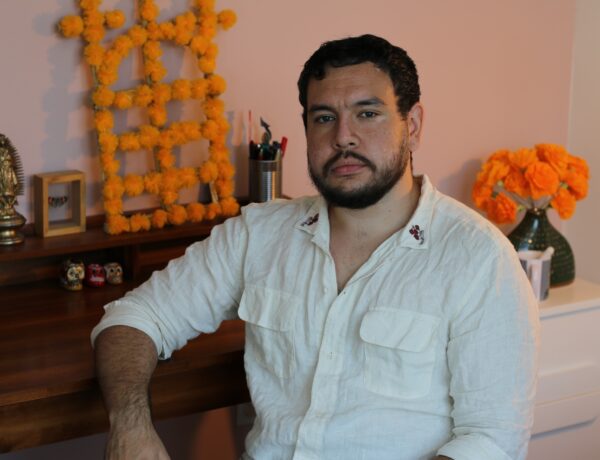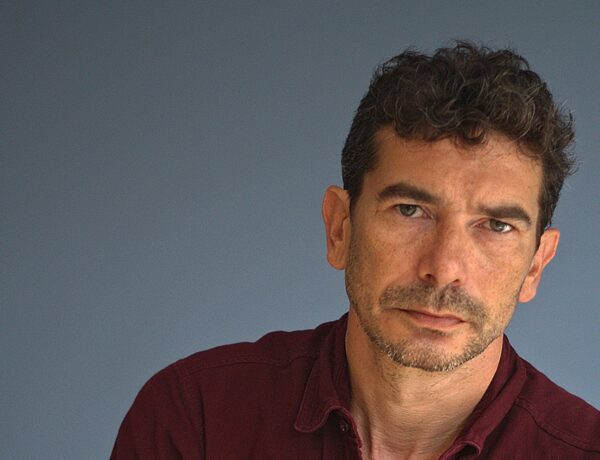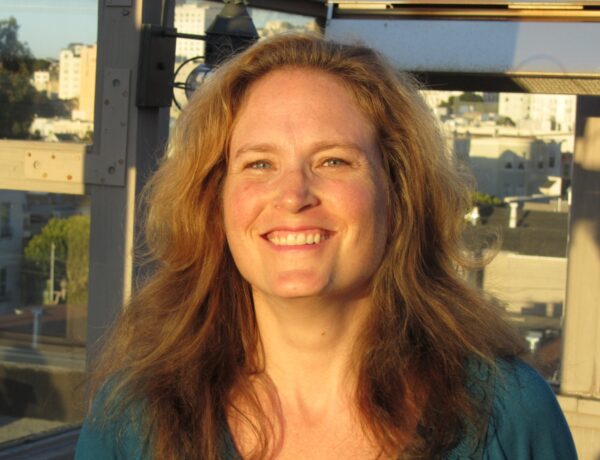Matthew Zapruder is a poet, editor, and professor. He was born in Washington, DC and earned a BA in Russian literature at Amherst College, an MA in Slavic languages and literature at the University of California, Berkeley, and an MFA in poetry at the University of Massachusetts, Amherst.
He is known for his conversational syntax and poems that engage themes of grief, perception, and logic. His work has been praised for its “razor eye for the remnants and revenants of modern culture.”
Zapruder is the author of several poetry collections including Father’s Day, Sun Bear, Come On All You Ghosts, The Pajamaist, and American Linden. He has also collaborated with painter Chris Uphues on For You in Full Bloom and co-translated Romanian poet Eugen Jebeleanu’s last collection, Secret Weapon: Selected Late Poems.
In addition to his own work, Zapruder is also a prominent figure in the poetry world as the cofounder of Verse Press, which later became Wave Books, and an editor for the press. He has edited the political poetry anthology State of the Union: 50 Political Poems and his own poems have been included in several anthologies including Best American Poetry. He is also the author of Why Poetry, a book of prose about reading poetry for a general audience.
Zapruder’s poetry has been adapted by several composers and performed at Carnegie Hall. He has received several honors including a Guggenheim Fellowship, a Lannan Foundation Residency Fellowship, the William Carlos Williams Award from the Poetry Society of America, and the May Sarton Prize from the American Academy of Arts and Sciences.
He has taught at several institutions including New York University, the New School, the University of California Riverside – Palm Desert Low Residency MFA Program, and the University of Massachusetts, Amherst.
He currently lives in the California Bay Area, where he is a professor in the Saint Mary’s College of California MFA Program in Creative Writing and an editor at large for Wave Books. He is also a guitarist in the rock band The Figments.
In this interview, Matthew shares insights on his writing routine, process, and the inspiration behind his book, Father’s Day. He takes us through a typical writing day, and shares his methods for overcoming roadblocks during a writing session.
Each week, we publish a new daily writing routine from a famous author. Subscribe to our newsletter so you don’t miss out!
Hi Matthew, great to have you on Famous Writing Routines. We’re really excited to talk to you about your writing routine and process. For those who may not know, can you please tell us a little bit about yourself?
I’m originally from the east coast (Washington, D.C.), and live now in the Bay Area with my wife and son. I work as an editor at Wave Books, a poetry publishing house located in Seattle, and as a Professor in a creative writing program. So my life is pretty busy! I write poetry and prose, and have also translated. I am currently preparing for a short online course that I am teaching on W.S. Merwin with Victoria Chang.
I think and write a lot about the creative process, particularly around poetry: where does poetic inspiration come from, and how do we keep space for it in our lives? In April 2023, I have a new book of prose coming out, Story of a Poem, which is about the process of writing one poem. It is also a memoir, and includes prose, other poems I have written, and writing about the elements of my life that make up the material for my poems.
Can you take us through the creative process behind your book, Father’s Day?
Usually my books are composed of poems that had a lot of different ways of coming to be. Many of the poems in this book were written during the time right around the Presidential election of 2016, which was a hard and tumultuous time for so many people. We were also experiencing the first of what are now annual fire seasons in the Bay Area, where for months at a time our lives are periodically disrupted by wildfires.
I often wrote very early in the morning, beginning with a stray thought or some observation about the news, or something that had happened in my own life, or maybe just something I was thinking about. I like to write poems “to” people, either actual friends, or sometimes long dead poets or other artists whose work means a great deal to me, almost like a conversation across time.
I often think of Whitman’s lines from Crossing Brooklyn Ferry, in which he talks to future readers: “It is not upon you alone the dark patches fall / The dark threw its patches down upon me also … I consider’d long and seriously before you were born.” I want to return that attention.

What does a typical writing day look like for you?
If I am writing poetry, I often wake up very early, like 5am. I make some coffee and go to my desk and try to start writing something. If I’m lucky, my son will sleep until around 7am.
If I can get an hour or so of writing in, then the whole rest of the day the poem is in the back of my mind somewhere. I am thinking about it, and whenever a new idea or line comes to mind, I can just quickly type it into my computer and continue with what I’m doing. Sometimes, if I have been writing a lot, I can finish a poem in an hour or so.
For prose, I need more time, 2-3 hours at a minimum, to write. Usually if I just block off the time, and go somewhere quiet, like my study or my office at school, I can get several pages done.
The rest of my day is filled with the sorts of obligations people who have children and jobs will be familiar with. I have come to think that the thing that matters the most is to commit to the time, to put it on the calendar, and to push back as ruthlessly as possible against any intrusions. Of course my family comes first, and the needs of my child and wife will supersede any writing. But anything else has to wait.
Do you have a target word count that you like to hit each day?
When I am writing prose, I will often commit to at least 500 words a day, and/or two hours of no meetings, emails, phone calls, alien invasions, watching cat Tik Tok videos, etc. If it’s a good writing day I might get a lot more than 500 words, but that’s a minimum. Several months a year I will make a solemn and holy agreement with another poet to write one poem a day, whatever the weather, emotional or otherwise.
Whenever you hit a roadblock during a writing session, what are some of the methods you use to get back into the flow of things?
As I said, I’m pretty ruthless about making the time for my writing. But during the writing session itself I try not to put any pressure on myself. If I am feeling blocked or frustrated or insecure, I just stop and read.
Even if I mostly read for the time that I have blocked out for writing, I consider that a good day. I do not use the internet or do any email during writing sessions, because that is too distracting. But during a writing session, I do not usually have any specific goal, other than to get to the place where writing could happen.
The only exception is when, at certain times, I make a pact with another writer to either write a certain number of words a day (usually 500), or to write a poem a day. In those cases I have those specific goals, and I just try to use whatever tricks I have to get something down.
Often I just try to start anywhere, with an idea or a question that seems interesting, and start scribbling in response to that thought until something good (hopefully!) starts to happen. Most of what I write in those situations is extremely rough, and needs a lot of work or will just be discarded, but it is also a good way to get myself back into the writing mode. And usually some good unexpected material comes out of it.
Much of the prose in Story of a Poem was written over the course of several months when I was exchanging prose with another writer, and many of the poems in Father’s Day were written in daily poem pacts with two poets whose work I love and admire.
Affiliate disclaimer: Some links on this website are affiliate links. We may earn a small commission if you make a purchase through these links, but only promote products we truly believe in. We disclose affiliate links and give honest reviews.



No Comments